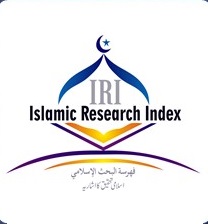On The Prerequisites Of Islamic Environmental Ethics
DOI:
https://doi.org/10.58932/MULF0017Keywords:
Environment, ethics, Islam, stewardship, resources, Qur’anAbstract
This article discusses various difficulties arising out of the concept of environmental ethics from an Islamic theological perspective. The author begins by describing growing Muslim awareness of environmental issues. Since the issue of manufactured climate change could not be raised in traditional Islam, the need arises to work out an environmental ethics based on the Qur’an. Subsequently, the Qur’anic concepts of hilafa and amana become the main focus of the article. The author highlights the need to develop a consistent view of Islamic ethics within the rise of Islamic theology in the European context, a view that is consistent with pre-modern Islamic scientific traditions and that deals with the contemporary understanding of ethics.
References
Abdul Aziz, L., Chief Oren, , Berry, T., Hanh, T. N., Bwoya, C. T., Stanley, J., Loy, D. R., Tucker, M. E., Swimme, B.,
MacGillis, S. M., & Berry, W. (2003). Spiritual ecology: The cry of the earth. The Golden Sufi Center.
Abū Ǧafar Muḥammad, M., R. Michael. (2005). The Scriptural Hermeneutics of Ibn Barraǧān and al-Biqāʿī. In Interpreting the Qurʾān with the Bible (Tafsīr al-Qurʾān bi-l-Kitāb) (pp. 267). Brill.
Al-Jayyousi, O.R. (2012). Islam and Sustainable Development: New worldviews. Routledge.
Al Sufi Rana, D., Ahmad, Syahputra, Edi, & Fauzi, K. (2020). The Effect of Islamic Oriented Problem-Based Learning Towards Spatial Ability and Self-Regulated Learning of Madrasah Aliyah Students. American Journal of Educational Research, 8(1), 753–761.
Eggen, Nora S, Sievers. (1982). “Ar Razi, Faḫr ad-dīn”, Qur’ani Tafsīr. Journal of Qur'anic Studies, 22(2), 48-50, 235 and 866.
Ayubi, Z. M. (2019). Gendered morality: Classical Islamic Ethics of the self, family, and Society. Columbia University Press.
Ben-Shammai, H., Shihadeh. (2005). Kalām in Medieval Jewish Philosophy. In History of Jewish philosophy (pp. 402-404). Routledge.
Carney, F. S. (1983). “Some Aspects of Islamic Ethics”. The Journal of Religion, 63(2), 159–174.
Daston, L., & Vidal, F. (1996). The Moral Authority of Nature. University of Chicago Press.
Rio Declaration on Environment and Development. (1992).
Dziri, A. (2019). “Wir haben euch die Erde als Erbe überlassen-zwischen Verantwortung und Nutznieß": der islamische Begriff des Kalif-Seins in Umwelt ethischer Hinsicht. Islamische Umwelttheologie, 57.
Dziri, M. H. (2013). Assessing the Entrepreneurial Ecosystem in Tunisia Massachusetts Institute of Technology].
Eggen, N. S., Sievers. (2011a). “Conceptions of Trust in the Qur’an” (Tabrai Tafsīr). Journal of Qur'anic Studies, 22(2), 58.
Eggen, N. S., Sievers. (2011b). “Conceptions of Trust in the Qur’an” (Tafsīr). Journal of Qur'anic Studies, 13(2), 44 and 48.
El-Merheb, M., Adamson, Peter. (2019). Islamic Political Thought: Competing Conceptions of the Rule of Law in the Middle Period (Encyclopaedia of Islam) SOAS University of London].
Hashemi, N., Cf. Zbidi, Khalid. (2009). Islam, secularism, and liberal democracy: Toward a democratic theory for Muslim societies (Islam and the Environment). OUP USA.
Hassan, G., Shabbir, M. A., Ahmad, F., Pasha, I., Aslam, N., Ahmad, T., Rehman, A., Manzoor, M. F., Inam-Ur-Raheem, M., & Aadil, R. M. (2021). Cereal processing waste. An environmental impact and value addition perspectives: A comprehensive treatise. Food Chemistry, 363, 157.
Heck, K., El-Merheb, Mohamad, Adamson, Peter, Paul L. (2019). Ethics in Ṣūfism (Encyclopaedia of Islam) SOAS University of London]. Glossary of Islam. Edinburgh University Press.
Kamla, R., Gallhofer, S., & Haslam, J. (2006). Accounting forum, Islam, nature and accounting: Islamic principles and the notion of accounting for the environment.
Karimi, A. M., & Palizban, M. (2019). Falsafa (Islamische Umwelttheologie).
Kersten, J. (2020). Natur als Rechtssubjekt. Für eine ökologische Revolution des Rechts. Aus Politik und Zeitgeschichte, 11, 27-32.
Manzoor, S. P. (1984). Environment and values: The Islamic perspective. Science, Values and Environment in Islam and the West, Touch of Midas 150-169.
Manzoor, S. P., Al-Jayyousi. (1984). Environment and values: The Islamic Perspective. Touch of Midas: Science, Values and Environment in Islam and the West, 5, 8, 27 and 156.
Marsh, G. P. (2003). Man and Nature. University of Washington Press.
Mcintosh, B. M., Cf. NOURENERGY E.V. (2018). Future of green Ramadan: representing Islamic environmental organizations in contemporary academic literature (Green Iftar Guide). (5th).
Mohammed, A. (2003). Erläuterung des Al-Qurʾān Al-Karīm in Deutscher Sprache (Vol. 1). Springer-Verlag.
Mohammed, A., Al-Ṭabari. (2020). Tafsīr al-qurʾān al-karīm. Erläuterung des Al-Qurʾān Al-Karīm in Deutscher Sprache. (Vol. 1). Springer-Verlag.
Nasr, S. H. (1968). Man and nature: The spiritual crisis of modern man. 96.
Niewöhner, F., Sievers. (1974). Die Diskussion um den Kalām und die Mutakallimūn in der europäischen Philosophiegeschichtsschreibung. Archiv für Begriffsgeschichte, 18, 126.
O'Connor, A. J. (2019). “Qur'anic Covenants Reconsidered: mīthāq and ʿahd in Polemical Context”. (Al-Aḥzāb). Islam and Christian–Muslim Relations, 30(1), 29–58 and 31–41.
Overbeck, F.-J., Brumlik, M., Elßner, T. R., Adrian, M., Dziri, A., Stobbe, H.-G., Hauswedell, C., Lemke, B., Vüllers, J., & Homolka, W. (2018). Gewalt und Gewaltfreiheit in Judentum, Christentum und Islam: Annäherungen an ein ambivalentes Phänomen (contexts of ḫalīfa in the Qur'an). Vandenhoeck & Ruprecht.
Reinhart, A. K. (1983). “Islamic law as Islamic Ethics”. The Journal of Religious Ethics, 186-203.
Shaker, A. F., ibid. (2015). “Man, Existence and the Life Balance (Mīzān) in Islamic Philosophy: (principle of unity (tawḥīd) and justice (ʿadāla)”. Journal of Islamic Studies, 26(2), 76-81.
Shihadeh, A. (2016).Theories of ethical value in Kalām: a new interpretation. 384–407.
Sievers, M. (2019). Schöpfung zwischen Koran und Kalām: Ansätze einer Koranischen Theologie (Vol. 8). EB-Verlag Dr. Brandt.
Sievers, M. (2022). Koranische Impulse für eine islamische Umweltethik. Welt–Umwelt–Mitwelt,
Sourdel, D. I. (2007). Glossary of Islam. Edinburgh University Press.
Stylianou, N., Buchan, I., & Dunn, K. W. (2000). A review of the international Burn Injury Database (Ibid) for England and Wales: descriptive analysis of burn injuries 2003–2011. BMJ Open, 5(2), 324.
Volm, F. (2017). “Der Mensch als Statthalter auf Erden: Schöpfungstheologie und Ökologie im Islam”. Herder-Korrespondenz, 71(12), 39-42.
Volm, F., Sievers. (2015). “Der Mensch als Statthalter auf Erden: Schöpfungstheologie und Ökologie im Islam”. Herder-Korrespondenz, 71(12), 136-145.
White Jr, L. (1967). “The historical roots of our ecologic crisis”. Science, 155(3767), 1203-1207.
Zbidi, M. (2015a). “Islamische Normenlehre zum Umweltschutz”. Zeitschrift für Umweltrecht, 6 (Der Mensch als Statthalter auf Erden), 40 and 324.
Zbidi, M. (2015b). “Islamische Normenlehre zum Umweltschutz”. Zeitschrift für Umweltrecht, 6, 323-330.
Downloads
Published
How to Cite
Issue
Section
License
Copyright (c) 2023 South Asian Journal of Religion and Philosophy (SAJRP)

This work is licensed under a Creative Commons Attribution-NonCommercial 4.0 International License.









